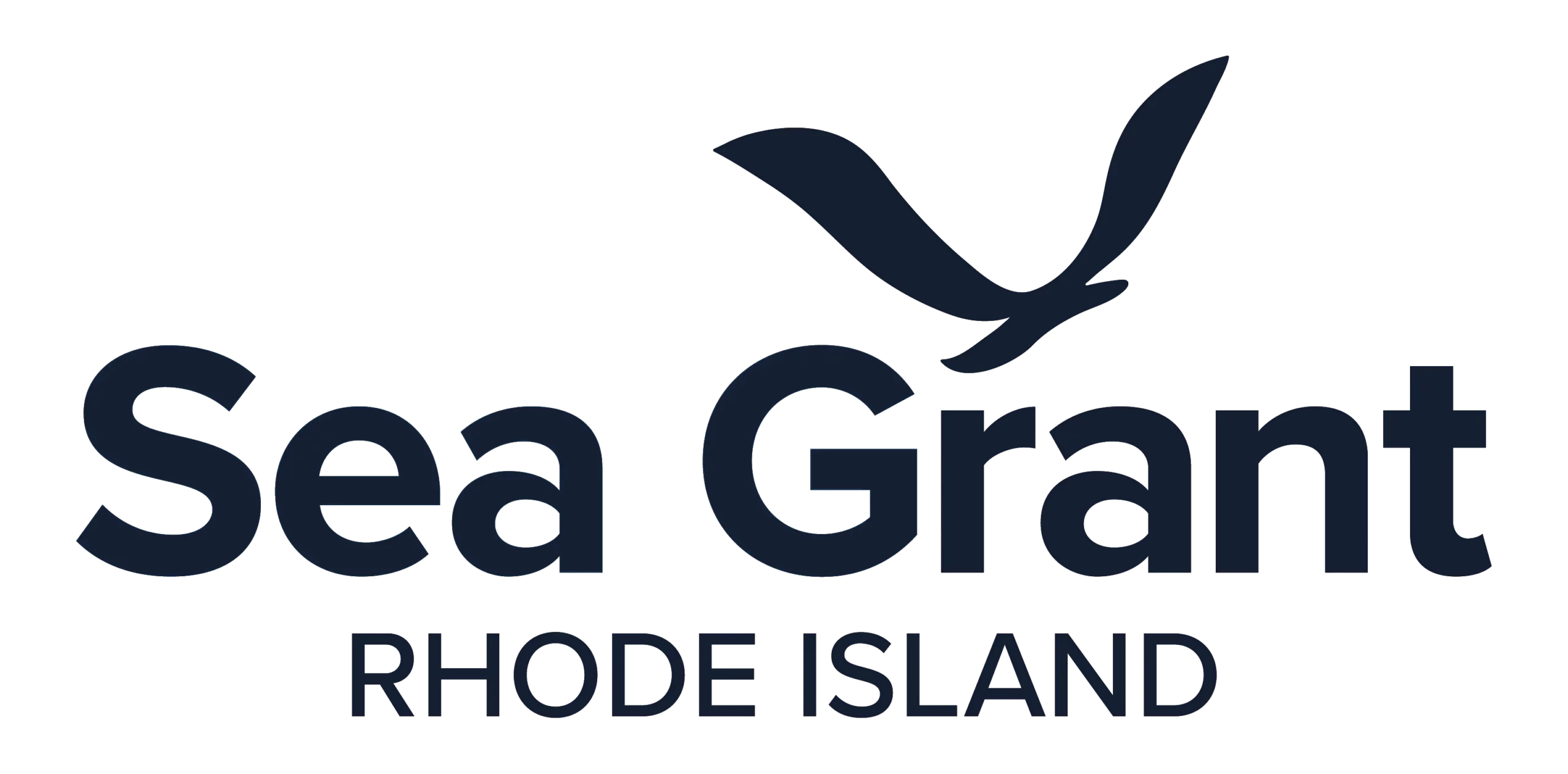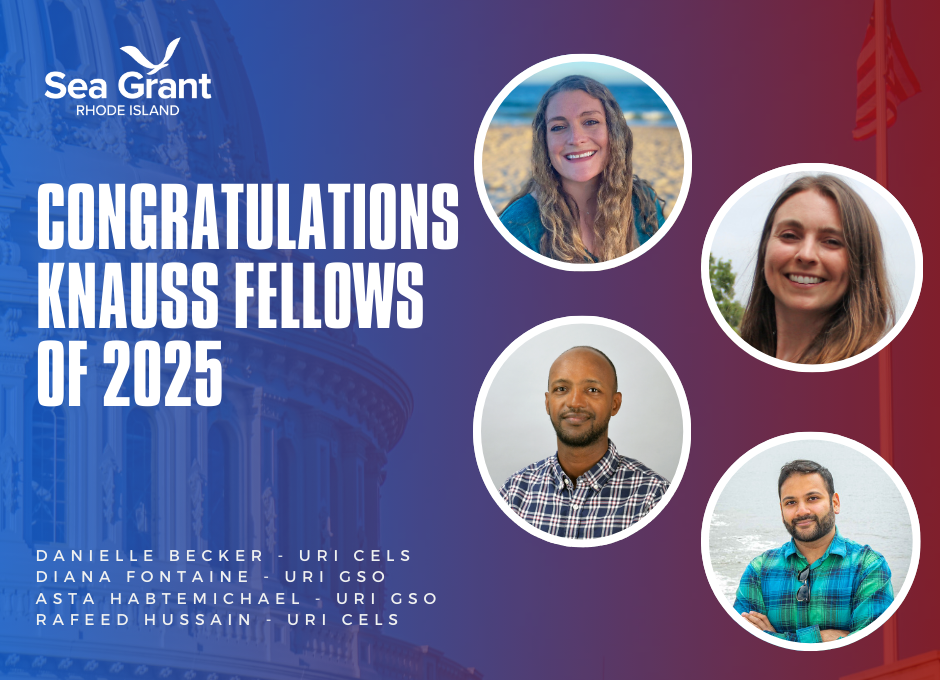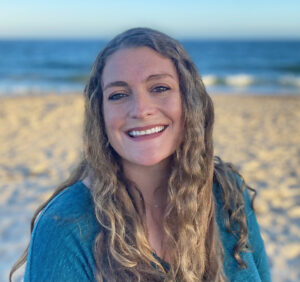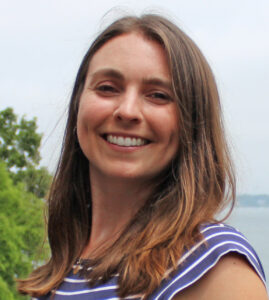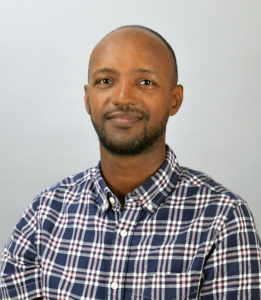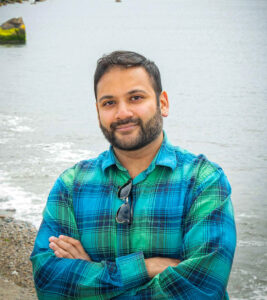Four University of Rhode Island graduate students are among 88 nationally who have been awarded John A. Knauss Marine Policy Fellowships through the National Sea Grant College Program. With research backgrounds in coral reefs, ocean pollutants, phytoplankton, and offshore wind energy, they will head to Washington, D.C., in February to spend a year working on coastal and marine policy issues within legislative and executive offices of the federal government.
Danielle Becker of Prospect Heights, Illinois, Diana Fontaine of Bedford, New Hampshire, Asta Habtemichael of Asmara, Eritrea, and Rafeed Hussain of Niantic, Connecticut, applied for the fellowship through Rhode Island Sea Grant and were chosen through a competitive process that includes review panels made up of experts in marine science, policy, and education. The finalists will participate in a week-long matching process that will pair them with their executive and/or legislative host office in the coming months.
Becker, a Ph.D. candidate in biological and environmental sciences, fell in love with coral reefs as a child. Though she grew up “lake-locked” near Chicago, her first experience on a reef came during a visit to Orlando’s Discovery Cove, which sparked an interest that led to her undergraduate and master’s degrees in marine biology (Eckerd College and California State University-Northridge, respectively) and Ph.D. research into coral reproduction and resilience. “Seeing the unlimited connections between organisms all in one place had me mesmerized,” she said. “I knew I wanted … to contribute to protecting and conserving these ecosystems,” where she has seen the effects of multiple mass bleaching events in the past decade.
Equity has been at the forefront of her research, and her examination of the effects of climate change on coral reefs’ long-term resilience and population dynamics has been entwined with community outreach. While studying the effects of stressors on coral reef resilience in Moorea, French Polynesia, for the past six years, she prioritized local community engagement, recognizing that conducting research as a visitor to a community requires building trust and a sense of collaboration.
Becker is looking forward to bringing her passions and focus to her work in Washington. “This opportunity is a way to understand the nuances involved in our political systems and develop constructive ways to contribute to marine and climate policy that can make long-lasting change in our fields,” she said.
Fontaine, who earned her Ph.D. in oceanography, remembers dissecting sea cucumbers in a high school science class. After studying marine science at the University of San Diego, she spent two years at the Smithsonian studying plankton in ballast water on cargo ships. Her undergraduate advisor suggested continuing her research in graduate school. Fontaine ended up in the Rynearson Lab at URI’s Graduate School of Oceanography, where she participated in 12 research cruises and tracked the fixation of carbon dioxide in phytoplankton via time series research as part of an effort to develop a predictive understanding of the ocean’s carbon cycle. She got her first exposure to science communication writing for Ocean Bites, a blog that explains current oceanographic and marine biology research for a non-expert audience. Fontaine is looking forward to her fellowship placement in the legislative branch, where she will work with a senator, representative, or a committee. “I have a strong understanding of both science communication and research,” she said. “I’m interested to learn how people in D.C. use the science people do around the world and turn it into policy.”
Habtemichael is a Ph.D. candidate in oceanography, and has also earned two master’s degrees in environmental science and management and in marine affairs at URI. His path to ocean sciences was different from many of his URI peers. He’d always wanted to be an engineer, but in his home country, Eritrea, students take a national exam at the end of high school, which, along with government policies and the country’s desperate need for trained personnel in applied marine science, decided his path. “That turn of events was a blessing in disguise,” he said.
He has thrived in his field and at URI, winning accolades like the Emerging Coastal Leaders Award and a science communication award through the DWELL Lab. His work has focused on bioaccumulation of persistent pollutants in the marine food web. Of his current research into per- and polyfluoroalkyl substances (PFAS), found in materials like Teflon, and considered forever chemicals, he said, “we’re trying to understand something you can’t see or touch.”
He applied for the Knauss Fellowship because he has come to realize that science and policy are not separate, even though they are often perceived as individual pathways. “Ecosystems show us that everything is connected,” he said.
Hussain, who earned his master’s in marine affairs, says his love of the ocean started at summer camp in middle school. “I was picturing archery, typical camp stuff,” he said. “But it was Ocean Camp at Project Oceanology. I was always a sciencey kid, but after dissecting squid and spending time on a research trawler, I was totally hooked.” He has returned to the camp year after year, as a camper, then a junior counselor, then an intern, and finally an educator.
Washington, D.C., itself won’t be a new experience for him. After studying at the University of Connecticut, he worked for Ocean Conservancy in Washington for nearly five years, focusing on ocean planning issues, including responsible offshore wind siting. At URI, he has focused on misinformation related to whale deaths in the region and the claims that those are related to offshore wind development.
His interest in the Knauss Fellowship connects directly to his work and research. “At Ocean Conservancy, I helped facilitate conversations between ocean stakeholders and congressional offices,” he said. With years of experience in advocacy, “I really wanted to be on the other side of the table.”
The Knauss Fellowship is a one-year paid opportunity for current and recent graduates from advanced degree programs to apply their scientific knowledge and experiences to current issues in science, policy, and public administration. Students who are enrolled in or have recently completed master’s, Juris Doctor and Doctor of Philosophy programs with a focus and/or interest in marine and coastal science, policy, or management apply to one of the 33 eligible Sea Grant programs.
For more information on the Knauss program, visit https://seagrant.noaa.gov/communities/students/graduate-fellows/knauss-fellowship-program/
– By Georgia Young, Rhode Island Sea Grant Graduate Communications Fellow
